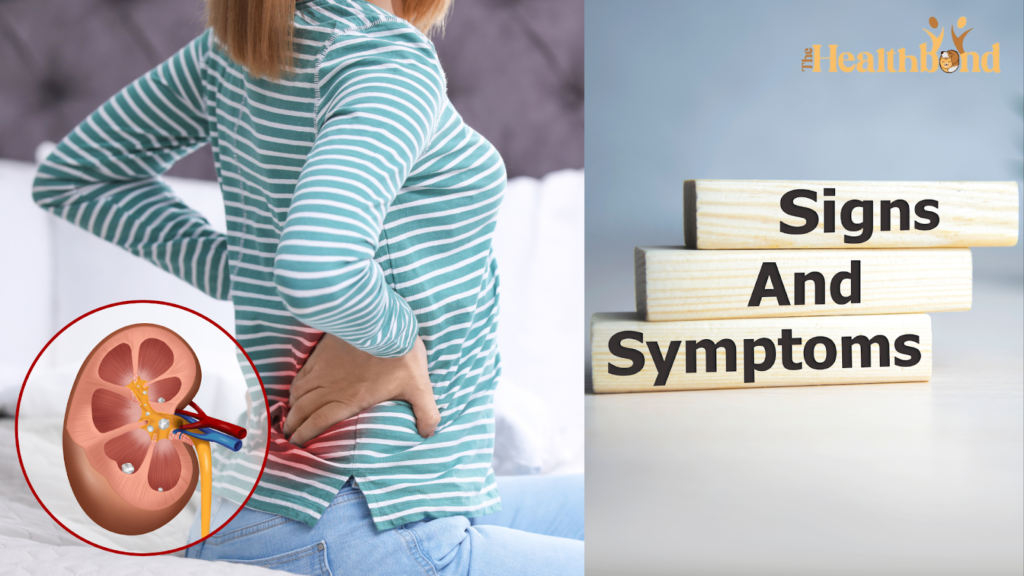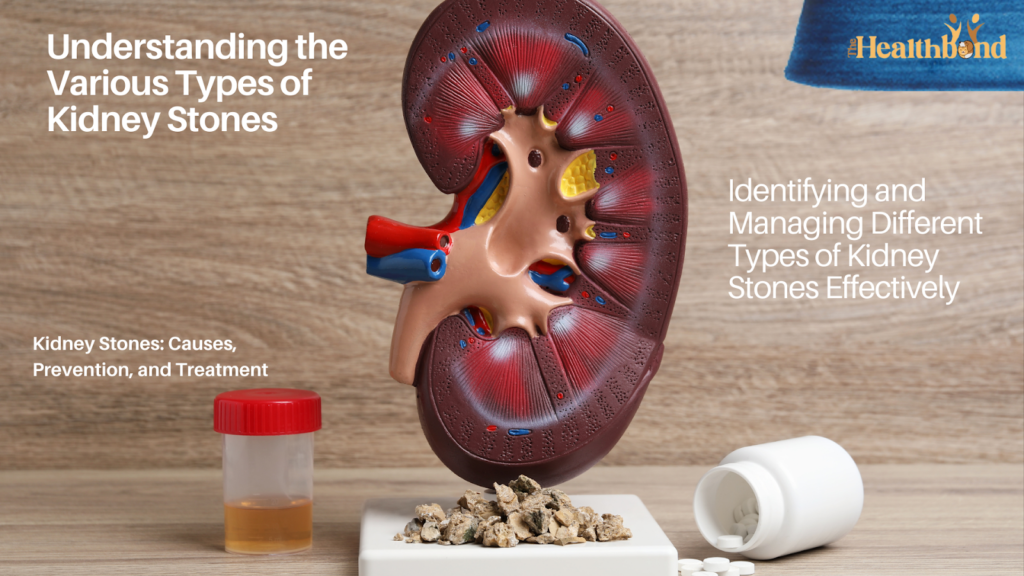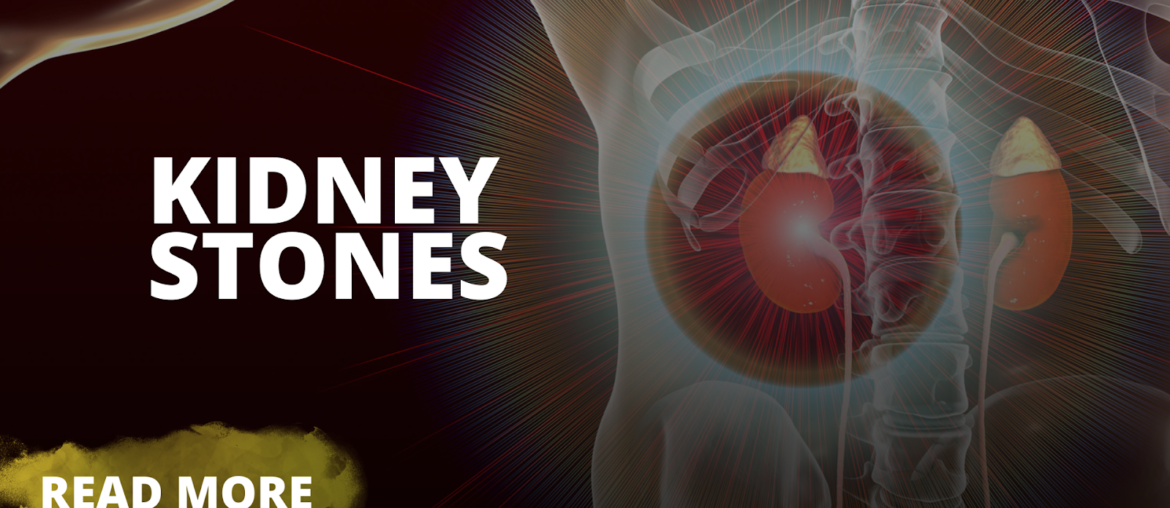Kidney stones are solid masses made from the chemicals (like minerals, acids, and salts) in the kidney. There are four types of kidney stones: calcium oxalate, uric acid, striate, and cysteine.
It is estimated that one in ten people may have kidney stones at some point in their lives.
SYMPTOMS:

Common symptoms include:
- severe lower back pain
- bleeding in the urine
- Nausea
- Vomiting
- Fever
- Chills
- urine stinking or urine looking cloudy
Formation of stones:
Different types of dirt dissolve in the urine. When waste becomes too much in too little liquid, crystals form.
Crystals attract other elements and combine to form a solid object that grows larger over time if it does not come out of the body with urine.
Usually, these chemicals are excreted with urine through the body’s master chemist i.e., The kidney. In most people, enough kidneys destroy them, and other chemicals in the urine prevent stones from forming. But often urine contains stone-forming chemicals such as calcium, oxalate, urate, cysteine, xanthine, and phosphate.
After it is formed, the stones can remain in the kidneys or form downwards from the urinary tract. Sometimes, small stones exit the body without causing too much pain in the urine. But stones that don’t move remain in the kidneys, urine, bladder, or urinary tract and can cause pain.
Causes of kidney stones:
Possible causes include drinking too little water, exercising (too much or too little), obesity, weight loss surgery, or eating a meal with too much salt or sugar. Infection and family history can also be the main cause of stones in some people. Eating excess amounts of fructose also increases the risk of developing kidney stones. Fructose is found in sugar and corn syrup.
Types of Kidney Stones:

Kidney stones are not formed from the same crystals. There are different types of kidney stones.
Stones of calcium:
Calcium stones are the most common. They are often made of calcium oxalate (although they may also contain calcium phosphate or mardate). Eating low-oxalate-rich foods can reduce your risk of this type of stone. High oxalate foods include potato chips, peanuts, chocolate, beetroot, and spinach.
However, although some kidney stones are made of calcium, it can prevent stones from forming if your diet contains adequate calcium.
Uric acid stones:
This type of kidney stone is more common in men than in women. These are common in people who have undergone chemotherapy.
This type of stone is produced when there is a lot of acidity in the urine. A diet rich in purine can increase urinary acidity levels. Purine is a colorless substance in animal proteins, including fish and shellfish. Taking enough water, cutting down on high-purine foods, and a healthy diet help avoid uric acid stones.
Struvite stones:
This type of stone is mostly found in women due to urinary tract infections. These stones can grow larger and cause urinary obstruction. These are the result of a kidney infection. Timely treatment of an underlying urinary tract infection can prevent the development of these types of stones.
Cystine stones:
Cystine stones are rare. They occur in both men and women and are found in those with the genetic disorder cystinuria. These stones are formed when cystine, an acid naturally present in the body, leaks from the body enters the urine through the kidneys and becomes a stone.
Risk factors that cause kidney stones:
- Dehydration
- Obesity
- Gout
- Family history of stones
- Kidney disease or kidney cyst
- Diet
- UTI (uniray tract infection)
- High blood pressure
- Certain supplements and medication
- Digestive diseases or surgery
Prevention:
First, keep yourself hydrated, limit animal proteins, limit foods high in sugar and sodium, and limit foods high in oxalate such as spinach, wheat bran, peanuts, etc.
Treatments:
Around 80% of kidney stones pass on their own. It also depends on their size and place. A larger stone takes more time or may not pass on its own. If you have a kidney stone that can’t pass on its own or blocks the urinary tract, there are several procedures to remove kidney stones that depend on various factors including size and place. Medicines are also given for some types of kidney stones and pain relief. Some procedures are:
- Shockwave lithotripsy (a procedure of breaking stones)
- Tunnel surgery
- Ureteroscopy (to remove stone from ureter and bladder)
Passing a kidney stone causes pain and discomfort. If you can manage your pain with medications and have no sign of infection or severe symptoms, you may not need treatment. You just need to hydrate yourself and stop using foods that can cause kidney stones if you experience any severe symptoms( like blood in urine, fever, chills, cloudy or foul-smelling urine, severe pain in your backside, difficulty, pain, or burning in urinating) you should seek immediate medical attention.






